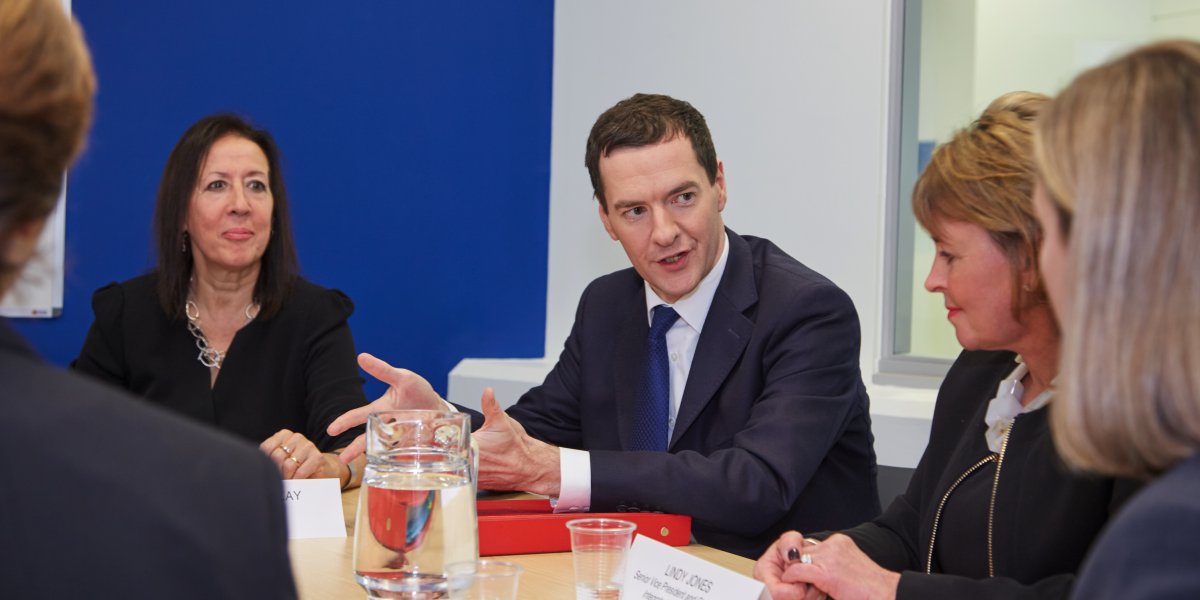19 soft skills that those who want to be good leaders must also have
The most successful leaders are not only excellent in technical expertise but also as "masters" of soft skills.
Widely known for interpersonal skills or human connection ( People Skill ), soft skills such as negotiating, moral building and maintaining relationships are key to the merit of a leader.
According to ResourcefulManager Magazine - a website with a mission to help managers work more effectively in their jobs, "Business expertise and knowledge do not have much value if leaders fail Mastering skills related to people ".
Here are 19 soft skills that anyone needs if they want to be a successful leader, and also useful tips to help you achieve it, according to a document compiled by ResourcefulManager.
Read more: If your boss has these 17 features, dedicate yourself to it because it's a great boss

1. Listen
Good communicators not only display fluent thoughts in their head but also a good listener. We tend to be loud in the room to show power and control, however, successful leaders are always aware of the importance of listening to other people's opinions and thoughts.
Tip : Express your concentration, take notes, refrain from judgment and open up to others' views when someone is speaking.
2. Communicate
Good communication skills are needed for forming and maintaining relationships. Skillful leaders in presenting ideas that are capable of managing employees and creating a more productive working environment than those who like to show off their talents.
Tip : Communicate politely, show confidence, make assertions with real evidence and try to limit uncertain words like "maybe", "maybe", "capable" or "as soon as possible".
3. Communicate in body language
A person's body language is often more important than what he or she actually said. According to one study, although there are still certain arguments, one thing is confirmed that the language we choose affects only the ability of the listener to understand the problem of about 7%, while the body language impact up to 55%.

Tips : Maintaining eye contact while speaking shows respect and sincerity, keeping a reasonable posture to show confidence, avoiding misleading gestures or being impolite like crossing arms In front of your chest or constantly revising your outfit / jewelry, while making sure your facial expression matches the message you want to convey.
4. Transmission of bad news
No one wants to be the one spreading the bad news, but any leader needs to remember that it is part of their job. The ability to transmit bad news related to business situation, market, project results or skillful and courteous personnel changes is the job that a manager needs to undertake.
Tip : It is better to speak bad news directly than by email or notes; be as honest and as accountable as possible and give employees an opportunity to react and discuss how the information flows to them.
5. Say no
In any leadership position, saying "no" to employees and ideas that are not feasible are also part of the job. It is very important to bluntly reject someone.
Tip : Show empathy for the person you said "no" to let them know that you understand the situation, explain to them your compelling reason for refusing and ending the story with one word Be positive by giving a different solution / help.

6. Negotiation
Most leaders must negotiate all day - such as with customers, employees, friends and family. Nearly successful negotiators often show fairness and kindness to others' expectations while still expressing what they want.
Tip : Consider the situation by observing the eyes of the opposite, ready to make many choices, showing that you are listening and understanding what they want to say, and proposing solutions according to a logical way for them to know you are a real supporter.
7. Connect with employees and colleagues
An intimate relationship between managers and employees is absolutely necessary to create a cohesive and effective working environment.
Tips : Always refer to the name of another person when talking, showing that you care about the personal life of the employee, appreciate and recognize the contributions to lower-level colleagues feel that they are important members of the organization.

8. Give criticism
For leaders, monitoring employees may not be possible at the optimal level so criticism is extremely important in maintaining high standards and working efforts to meet those standards. .
Advice : Please criticize discreetly, not pointing, not painting more problems, not adding oil to the fire, clearly defining what you want to change and asking for their skills / responsibilities to They feel that they have a responsibility to accomplish something.
9. Handling staff lacking discipline
Any office will always have employees whose behavior and attitudes can seriously affect the work environment. Leaders must know how to handle these employees, because other employees will judge / evaluate leaders based on how they overcome the crisis, or in other words, control the situation.
Tips : Solve problems as soon as possible instead of waiting, based on the information that has been recorded / verified, indicating unacceptable behavior and planning for repairs and daily monitoring to ensure protect the progress.
10. Maintain professionalism
Maintaining professionalism is extremely difficult for leaders who are friendly, close to staff but recognizing the limits between work, personal and balance between them is the sophistication that any Leader should also be achieved.

Tips : Set clear boundaries when you work with support staff and members to avoid creating bias that leads to non-verbal language.
11. Change management
People respond to change in many different ways. Employees will often look at their leaders during organizational changes, especially bad fluctuations as a guarantee, guidance and a sense of stability.
Tip : Give employees the opportunity to share their thoughts or questions about the company situation, focus on positivity and always give answers to those questions.
12. Control opposing behaviors
In the office there is no lack of behaviors, opposing attitudes, lack of cooperation, and the way leaders who control this situation will be the great "point" secret in the eyes of other employees.
Advice : Control behaviors skillfully by focusing on the problem, avoiding confrontation; at the same time, take responsibility if you are one of the causes of conflicts and ask for the help of senior advisers / leaders to find solutions.
13. Handling complaints
Leaders continuously receive complaints from employees. Good leadership means that they will handle complaints in the most ingenious and fair manner.

Tips : Ask the complainants to make them part of the solution and consider creating a rule that you - a "never complain" leader unless you suggest another solution for what's happening.
14. Train a good personality
Everyone wants to be a polite and loved person. A good personality not only helps maintain strong relationships with employees but also makes you a model for other employees to follow.
Tips : Respect other people's time and come early in meetings, do not use the phone unless necessary, do not interrupt and make sure you always say "invite ." and "thank you".
15. Control yourself in debates
The way a leader controls himself in a debate will greatly reflect his or her human skills. Excellent leaders always keep a cool head, open their minds to other people's views and move towards fairness.
Tips : Search for a neutral position, be polite, calm and maintain a stable voice, avoid provoking someone else in the debate and focus on the next issues.

16. Authorization
While authorization seems like a simple job, it does indeed require ingenuity and human skills to motivate employees to work and complete tasks efficiently.
Tips : Make clear the goals and results you expect, point out the challenges and discuss obstacles that employees may face, and provide support if available.
17. Promote the spirit of work
One of the most important responsibilities of leaders is to build and maintain the spirit of working for all members in the office. Occasionally, employees will be distracted, distracted, stressed and they need a well-rounded leader who cares about their emotional needs.
Tips : Regularly exchange information, changes and company-related news so that employees do not feel they are removed from orbit, suggest growth opportunities and explain the importance of each person for the company as well as the vision of the whole business.

18. Staff assessment
Successful leaders always show their recognition / assessment of the employee's results, even if it's just a simple pat on the back.
Tip : Recognize that each employee is effectively employed according to different criteria to demonstrate each person's performance appropriately. Using the meeting is a good solution to enable employees to congratulate each other or, if necessary, provide physical support.
19. Destroy the root of bad deeds
Leaders need to recognize and prevent the behavior of employees with malicious intent, which can negatively impact customers, productivity or corporate culture.
Advice : Pay attention to behaviors such as going late, encroaching on other people's personal space, improperly teasing behavior, judging, gossiping and constantly complaining.